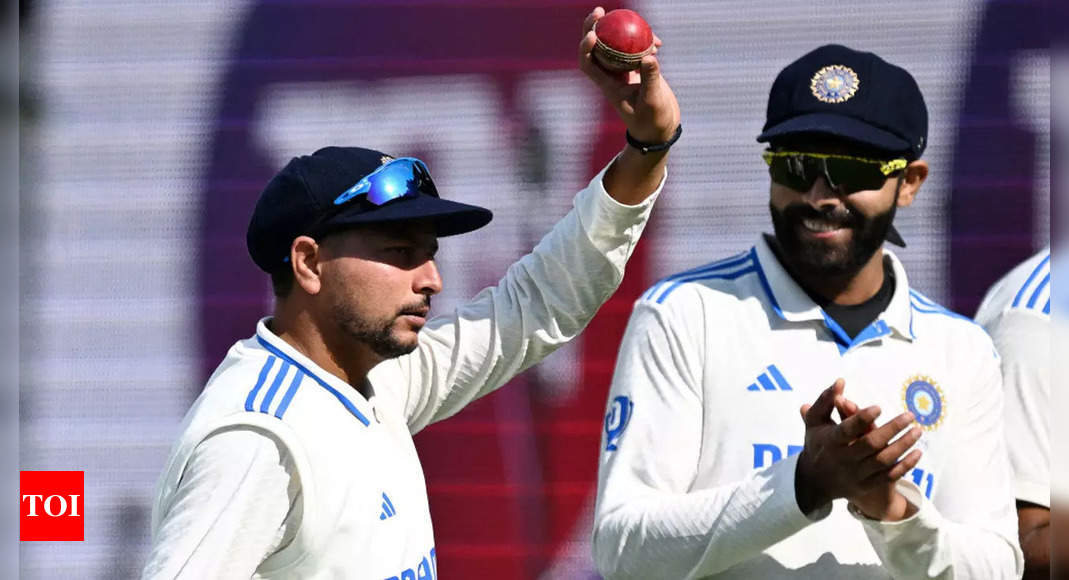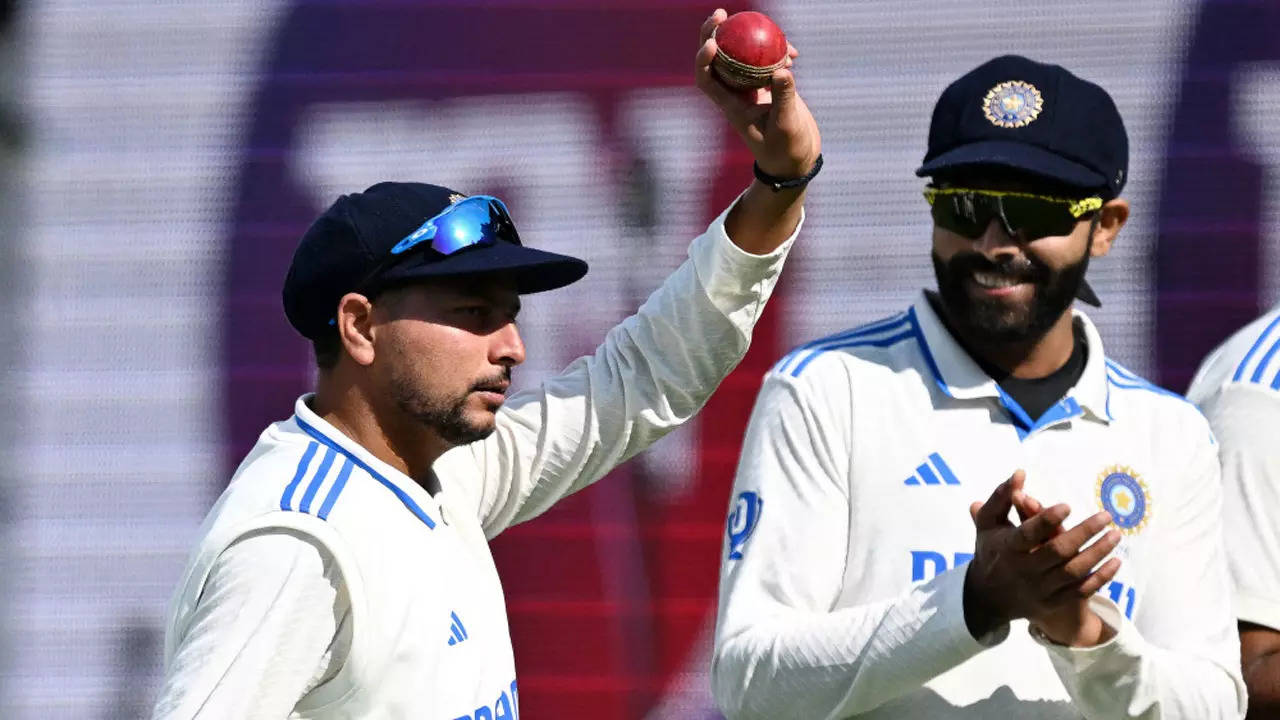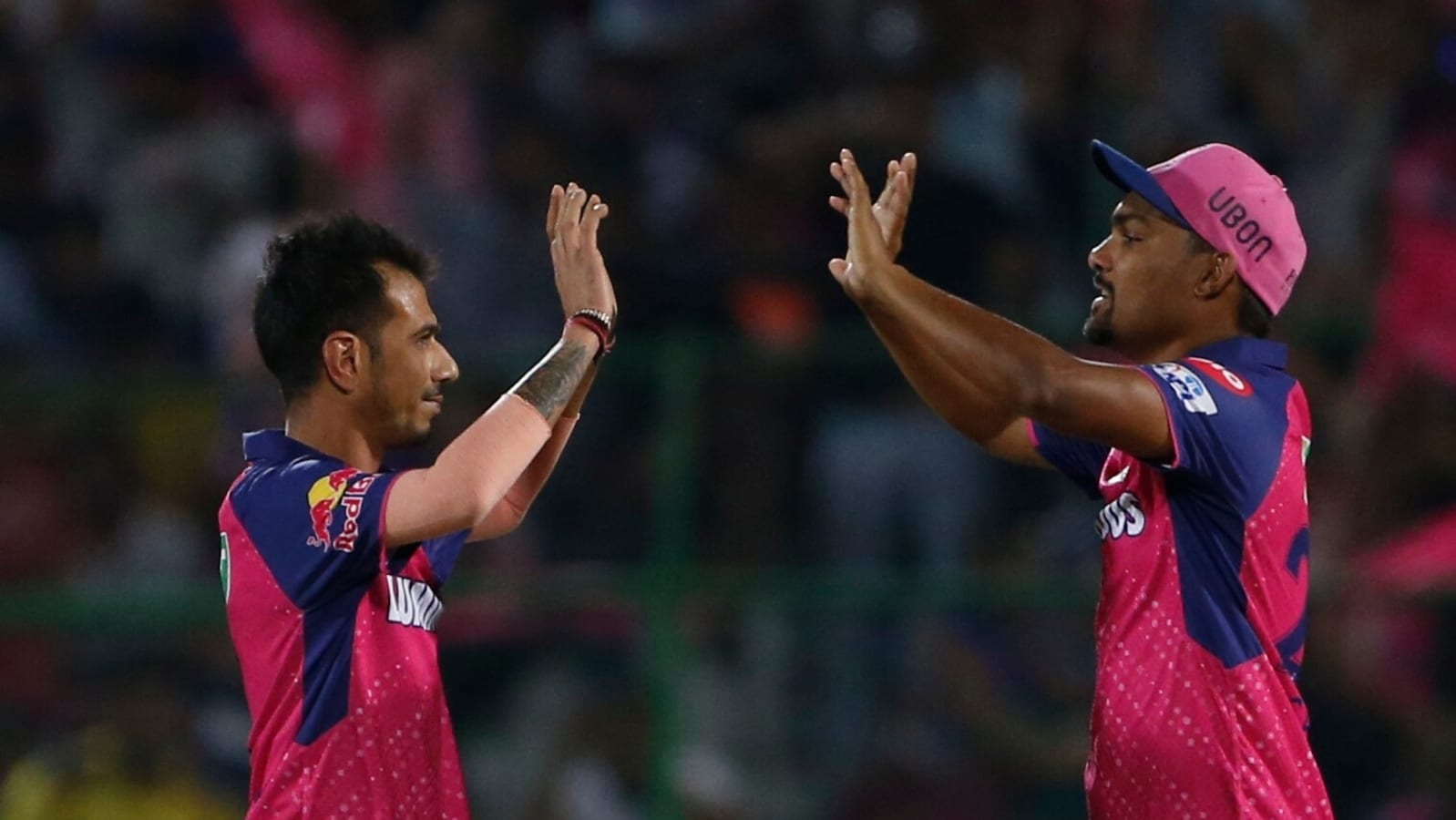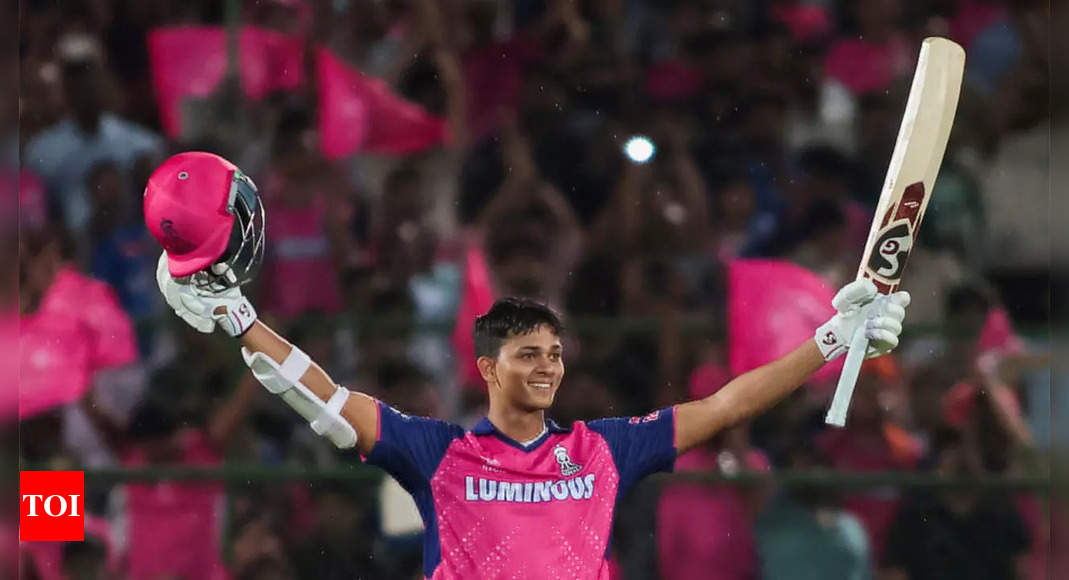
[ad_1]
After a round of catching, Ashwin, in a gesture reminiscent of an older brother, literally pressed the ball into Kuldeep’s hands. While Ashwin had taken four wickets in his 100th Test, Kuldeep achieved a five-for, a feat he had narrowly missed in the previous game against England.
This symbolic exchange might subtly indicate a changing of the guard in terms of who will lead the spin attack in the coming years. Despite Ashwin having claimed 21 wickets in this series with one more innings to go, Kuldeep, who was initially left out of the opening match, has stood out in terms of impact.
The left-arm wrist spinner showcased his mastery with the ‘Chinaman’s leg-break,’ dismissing top batter Zak Crawley and evoking memories of his brilliance in the 2019 World Cup. A perfectly pitched delivery outside the off-stump enticed Crawley into a lunge drive, sneaking between bat and pad and leaving the batter bewildered – a moment that encapsulates a left-arm wrist spinner’s dream.
In 2019, during a Test in Sydney where Kuldeep secured a five-for, then-head coach Ravi Shastri declared him “India’s lead spinner in overseas Tests.” However, inconsistent selections and a career-threatening knee surgery relegated him down the pecking order.
Despite facing challenging times, Kuldeep found little support around him when he needed it the most. The current captain, Rohit Sharma, has changed this narrative by providing the comforting support Kuldeep required. Notably, Kuldeep has experienced a resurgence in form across formats whenever Rohit has been at the helm.
Kuldeep’s childhood coach Kapil Pandey, a tough cookie from Azamgarh, a thoroughbred in Mumbai club cricket and someone who has navigated through the Kanpur maze wouldn’t allow his ward to throw in the towel.
“He has three hat-tricks in white ball cricket but I completely understand that team combination is always paramount,” Pandey, who runs his academy in Kanpur, told PTI during a recent interaction.
Kuldeep was back in his elements when he played against Bangladesh in December 2022, picking eight wickets and scoring a valuable 40, only to be replaced by a mediocre Jaydev Unadkat in the very next game.
But that Bangladesh series was the turning point for Kuldeep, feels Pandey.
“Before the tour of Bangladesh, we worked on his flight, line and length. The frame of mind for maximum bowlers now is that we don’t need to use flight. It is just about containing the flow of runs and get wickets in the process like they do in T20,” Pandey said.
How Kuldeep countered ‘Bazball’
There are times when cricket as a game is over-analysed and solutions become complicated.
Pandey wanted his best student to follow his process of getting wickets in ODI games, where he has enjoyed commendable success.
“Aap batao Bazball hai kya? Old fashioned ODI cricket hi toh hai? (You tell me what is Bazball? It is just old fashioned ODI cricket,” Pandey summed it up lucidly.
“In yesteryears’ ODIs, a good score in 50 overs was 250 at five runs per over. Now just translate that to 90 overs and it is 450 runs in a day. That is exactly how England played the game. They took Test batting into ODI mode.”
“So, Kuldeep was simply told that way you bowl the way you bowl in ODIs. Bring that aspect of your bowling into Tests.”
Tweaks in technique
The Kuldeep, who looked miserable in Chennai during the 2021 home series against England, had a diagonal run-up with a slower arm-speed. That was the first thing that was changed.
“Post surgery, his run-up to the crease became straighter, arm speed increased. The moment arm speed increases, the balls spins at a higher speed.”
The next part, which was also the most important, was weight transfer while delivering the ball.
That is called pivot, where a spinner with his twist of waist, puts the entire weight of his body on the bowling shoulder.
“For a spinner, the pivot is weight transfer — while he pivots, he needs to lean forward more, the classic example is Shane Warne. While pivoting, you would see how much his bowling shoulder used to lean forward, due to this transfer of weight. The ball would whiz at a faster clip while travelling through the air.
“Kuldeep also became better in using the footmark patches of his teammates bowling from other end.”
While training in Kanpur, Pandey always kept three left-handers and three right-handers ready for Kuldeep, so that if his rhythm was disrupted in match situations, he could deal with it.
“Earlier, he would pitch it a bit up and would always look at the batter. The Kuldeep that bowls now, concentrates on the good length spot instead of looking at the batter.”
(With PTI inputs)
[ad_2]
Source link










